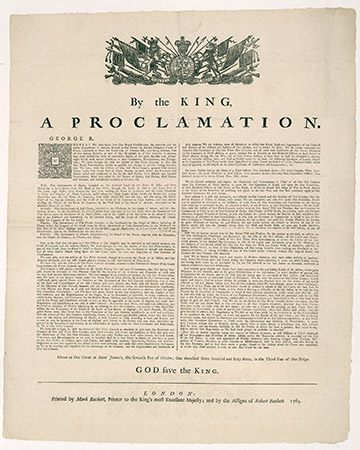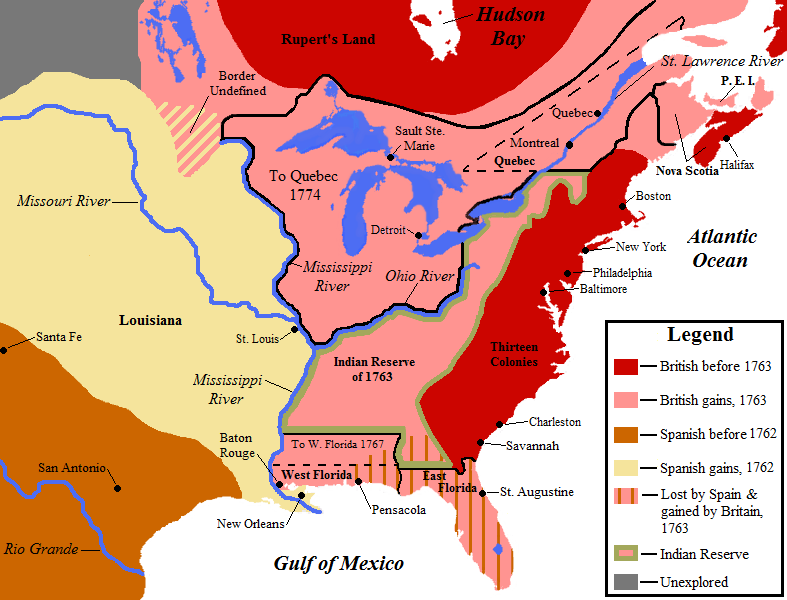The Seven Years War (1756 - 1763) marked the end of Nouvelle France and the beginning of British North America. To bring peace among those in North America, the Royal Proclamation of 1763 was born. The Royal Proclamation of 1763 had the goal of Assimilating the French population into british culture and after the events of Pontiac's Upsrising: preventing a war with the aboriginals.

The French were able to become semi-autonomous and the Aboriginal's Land rights were recognized. This was done with the intention of having the Aboriginals and the French accept British Rule. However, this did not sit well with the thirteen colonies. The Land given to the Aboriginals prohibited the westward expansion of the 13 colonies. From their viewpoint, a third party had been treated better than themselves.

The Royal Proclamation of 1763 created the Province of Quebec, which lead to the Quebec Act of 1774; Cementing the French's involvement in the to be nation of Canada. The Royal Proclamation of 1763 gave the First Nations a voice they never had. To this day, this proclamation is still referenced and brought up time and time again in order to defend the rights to land ownership for the First Nations. While this proclamation isn't as popular as the War of 1812 or the Seven Years War, it still plays an incredibly important role in how we deal with issues today and why Canada exists as it does today.
